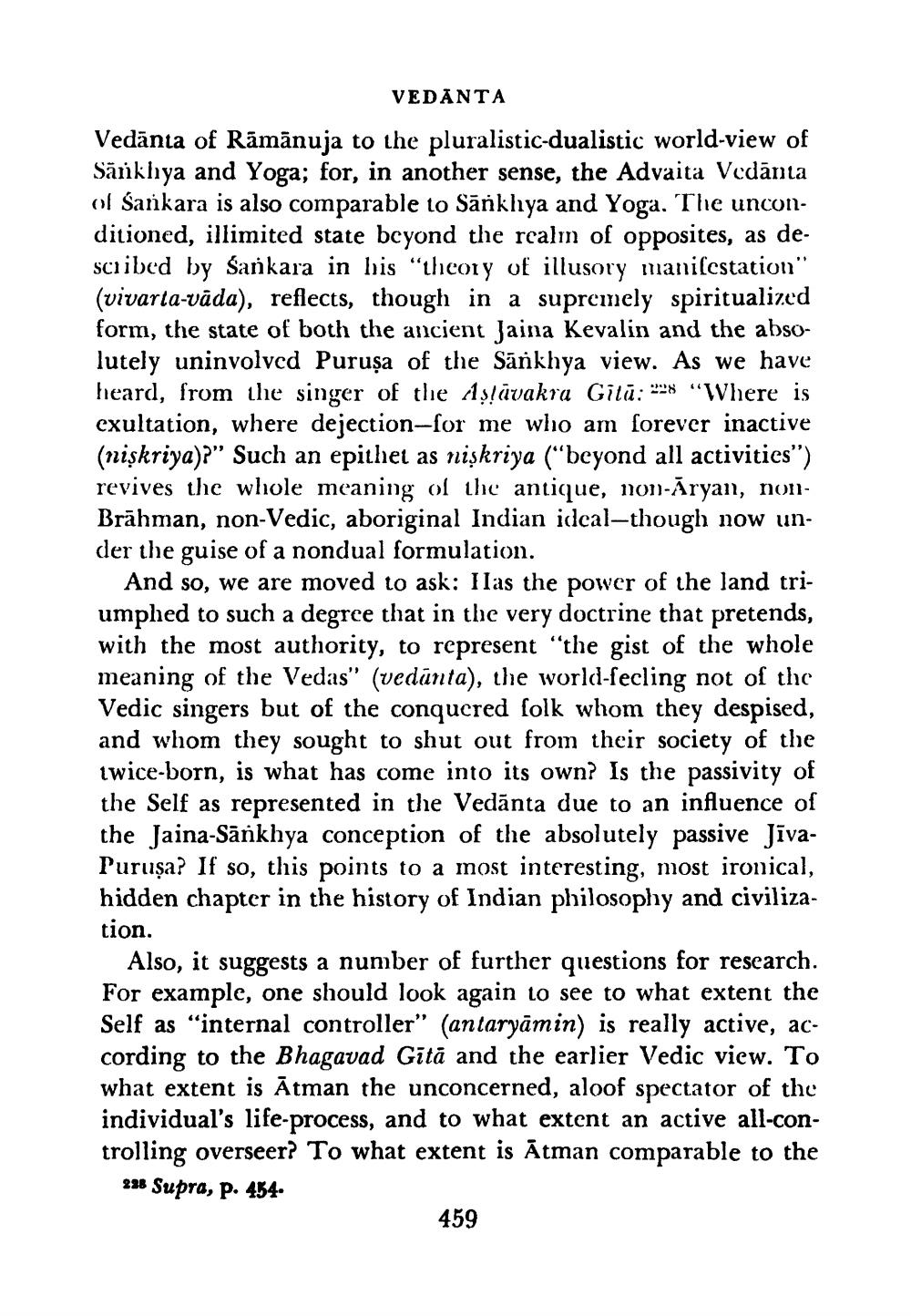________________
VEDANTA
Vedānta of Rāmānuja to the pluralistic-dualistic world-view of Särklıya and Yoga; for, in another sense, the Advaita Vedānta of Sankara is also comparable to Sānkhya and Yoga. The unconditioned, illimited state beyond the realm of opposites, as described by Sankara in his "theory of illusory manifestation" (vivarla-vāda), reflects, though in a supremely spiritualized form, the state of both the ancient Jaina Kevalin and the absolutely uninvolved Purușa of the Sankhya view. As we have heard, from the singer of the Aslāvakra Gitā: "28 "Where is exultation, where dejection-for me wlio am forever inactive (niskriya)?” Such an epithet as niskriya ("beyond all activities") revives the whole meaning of the antique, non-Aryan, nonBrāhman, non-Vedic, aboriginal Indian ideal-though now under the guise of a nondual formulation.
And so, we are moved to ask: Ilas the power of the land triumphed to such a degree that in the very doctrine that pretends, with the most authority, to represent "the gist of the whole meaning of the Vedas" (vedanta), the world-fecling not of the Vedic singers but of the conqucred folk whom they despised, and whom they sought to shut out from their society of the iwice-born, is what has come into its own? Is the passivity of the Self as represented in the Vedānta due to an influence of the Jaina-Sankhya conception of the absolutely passive JīvaPuruşa? If so, this points to a most interesting, most ironical, hidden chapter in the history of Indian philosophy and civilization.
Also, it suggests a number of further questions for research. For example, one should look again to see to what extent the Self as "internal controller" (antaryāmin) is really active, according to the Bhagavad Gitā and the earlier Vedic view. To what extent is Ātman the unconcerned, aloof spectator of the individual's life-process, and to what extent an active all-controlling overseer? To what extent is Ātman comparable to the 228 Supra, p. 454.
459




